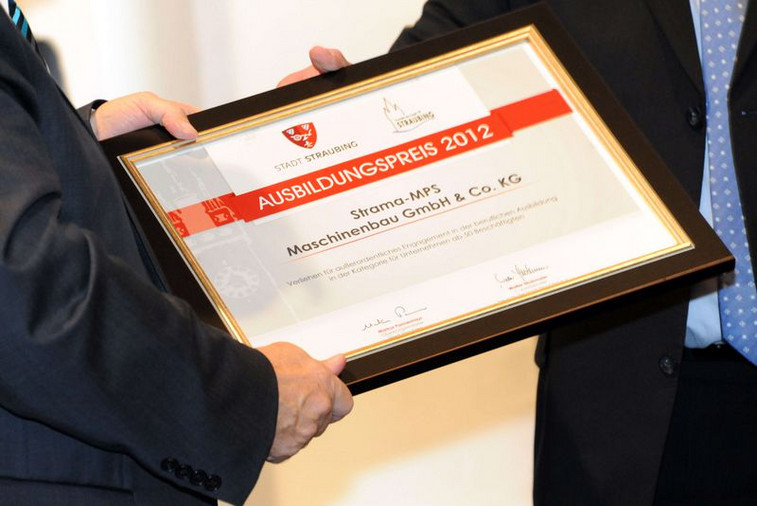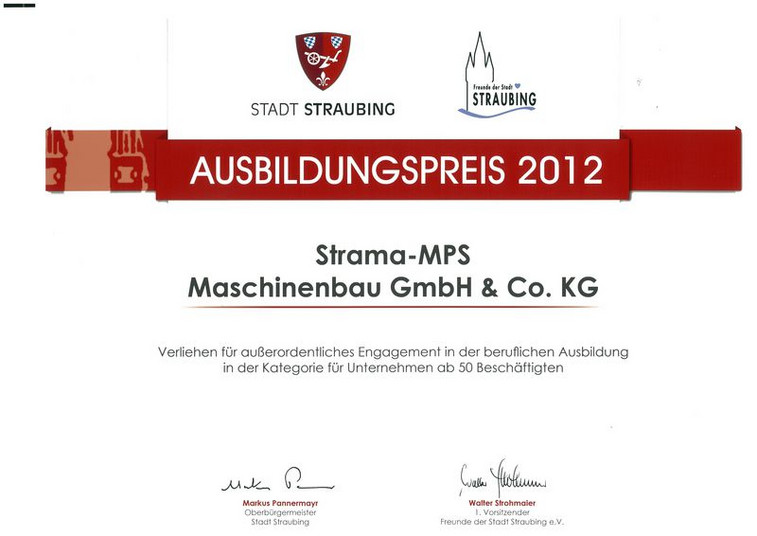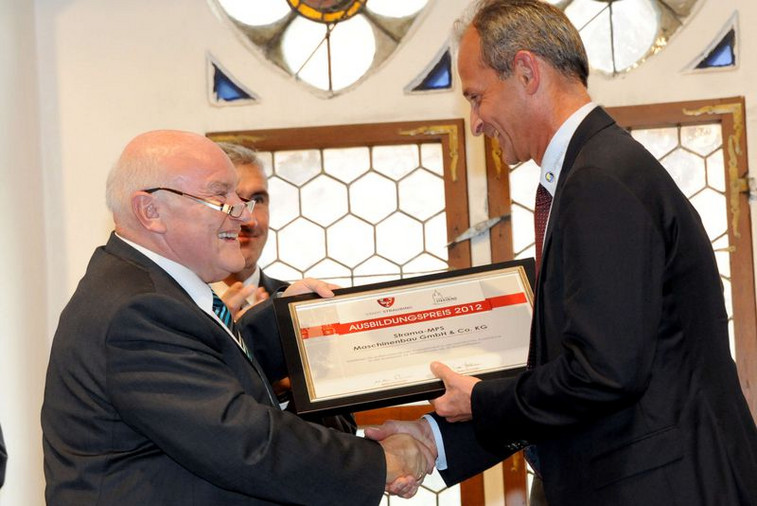Strama-MPS receives apprenticeship Award 2012
Strama-MPS obtained the apprenticeship award for category III being given by the City of Straubing and the Association “Friends of the City of Straubing” for the second time. Ernst Hinsken, Member of the German Federal Parliament and Chairman of the Committee on Economics and Technology handed over the certificate in the historic assembly room of Straubing’s City Hall on September 14. Congratulations and thanks were expressed by Markus Pannermayr, Lord Mayor of Straubing, and Walter Strohmaier, Chairman of the Association “Friends of the City of Straubing”.
Almost thousand young people obtained their vocational training with Strama-MPS over the last six decades. Since the same period exists an own apprentice workshop for young people in metalworking. At present more than ten jobs requiring vocational training are offered in the industrial and commercial area and almost 60 apprentices are currently employed with Strama-MPS. These figures are something the company can be proud of and that identifying with “their Strama” starts for the employees already from early years on is proven by the fact that the very apprentices had prepared themselves the application for the apprenticeship award.
At the prestigious award ceremony for the companies Strama-MPS as well as Sehlhoff and Leibl in the two other categories Ernst Hinsken recognized their commitment for the in-house vocational training, which is enormously important for the economic strength, especially against the background of the looming shortage of skilled workers.
The jury, who had been responsible for selecting the prize winners, included independent representatives from the Employment Agency in Straubing, the Public Vocational Schools in Straubing, the Chamber of Industry and Commerce for Lower Bavaria, the Lower Bavaria-Upper Palatinate Chamber of Crafts, the Association “Friends of the City of Straubing” as well as representatives of the City of Straubing. The assessment of the applications included numerous criteria such as vocational training company for many years, high rate of vocational training, vocational training beyond the own needs, vocational training for new or rare types of jobs, vocational training for girls in men’s jobs or for boys in women’s jobs, above-average efforts of the company in vocational training as well as training of people being disadvantaged in the labour market.



